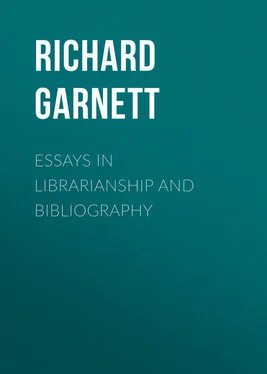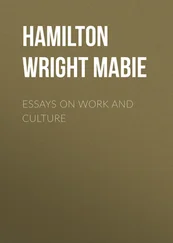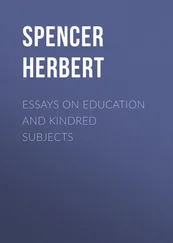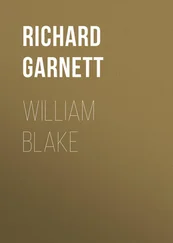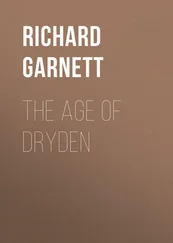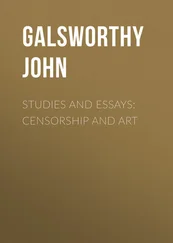Richard Garnett - Essays in Librarianship and Bibliography
Здесь есть возможность читать онлайн «Richard Garnett - Essays in Librarianship and Bibliography» — ознакомительный отрывок электронной книги совершенно бесплатно, а после прочтения отрывка купить полную версию. В некоторых случаях можно слушать аудио, скачать через торрент в формате fb2 и присутствует краткое содержание. Жанр: foreign_antique, foreign_prose, на английском языке. Описание произведения, (предисловие) а так же отзывы посетителей доступны на портале библиотеки ЛибКат.
- Название:Essays in Librarianship and Bibliography
- Автор:
- Жанр:
- Год:неизвестен
- ISBN:нет данных
- Рейтинг книги:4 / 5. Голосов: 1
-
Избранное:Добавить в избранное
- Отзывы:
-
Ваша оценка:
- 80
- 1
- 2
- 3
- 4
- 5
Essays in Librarianship and Bibliography: краткое содержание, описание и аннотация
Предлагаем к чтению аннотацию, описание, краткое содержание или предисловие (зависит от того, что написал сам автор книги «Essays in Librarianship and Bibliography»). Если вы не нашли необходимую информацию о книге — напишите в комментариях, мы постараемся отыскать её.
Essays in Librarianship and Bibliography — читать онлайн ознакомительный отрывок
Ниже представлен текст книги, разбитый по страницам. Система сохранения места последней прочитанной страницы, позволяет с удобством читать онлайн бесплатно книгу «Essays in Librarianship and Bibliography», без необходимости каждый раз заново искать на чём Вы остановились. Поставьте закладку, и сможете в любой момент перейти на страницу, на которой закончили чтение.
Интервал:
Закладка:
Here I suspend my survey, but I think quite enough has been said to indicate the number and importance of the subjects taken up by the Association, while the present condition of some of them, compared with that which they held before they had become subjects of public discussion, proves that the Association's labours have not been in vain in the past, and the rapid development of library work on all sides proves equally that there need be no apprehension of the failure of material for its discussions in the future.
I may fitly conclude my address with some notice of this decided increase of interest in libraries, especially as it relates to free libraries; of the effect which it may be expected to produce upon the status of our profession, and of the claims encouraged and the duties imposed in consequence. Before coming to this division of my subject, however, I ought, as this address is mainly retrospective, to record briefly some exceedingly gratifying occurrences which the historian of libraries will have to note. First among them I place two munificent benefactions – Mr. Carnegie's gift of fifty thousand pounds to the people of Edinburgh towards the formation of a public library, and Mrs. Rylands' establishment of the Spencer Library, worth probably nearly a quarter of a million, in the city of Manchester. The first is an instance of that public spirit not unknown here, but I fear less known than in the United States, which in that country frequently takes the form of library donation or endowment, but here seldom enters that channel except when a generous employer, like Mr. Brunner of Northwich, builds a library mainly for his work-people. The second instance is almost unprecedented. Donations of money for library purposes are not infrequent, but that a public benefactor like Mrs. Rylands should purchase a famous library at an enormous expense only to make it a public library immediately afterwards, and should moreover take upon herself the entire cost of the requisite buildings, and provide it with a staff and funds for its further extension, are indeed an unprecedented series of occurrences. I need not say that had Mrs. Rylands purchased Lord Spencer's Library solely for herself, we should still have been under deep obligation to her for preventing the books from going out of the country. As it is, she has not only laid Britain under infinite obligation, but I hope will prove to have in the long run raised the standard of bibliographical research throughout the country, both by bringing together so many bibliographical treasures, and by her eminently judicious choice of a librarian. In this connection I may pass on to another event of moment – the recent foundation of a Bibliographical Society through the untiring exertions of Mr. Copinger. It is very gratifying to find that the constituents of such a society exist in a country where exact bibliography has been so little cultivated, and there can be no doubt of the extent and interest of the field which is open to such a body.
The spread of a taste for bibliography is further illustrated by the fact that an enterprising publisher has found it worth while to produce a series of bibliographical manuals under the able editorship of Mr. Alfred Pollard, and that these have amply repaid him. I may further notice the recent appearance of two works of great importance to English bibliography: Professor Arber's transcripts of the registers of the Stationers' Company, now on the point of completion, and the supplement to Allibone's Dictionary of English Authors. Two great advances in library construction also call for a word of recognition; the introduction of the sliding press at the British Museum, which indefinitely adjourns the ever-pressing question of additional space both in this and in every other library to which it can be adapted; and the general employment of the electric light, which insures libraries against the worst enemy of all. While touching on library construction, I must briefly allude to a very remarkable recent publication, the article "Bibliotheca" in the German Cyclopædia of Architecture. This exhaustive disquisition is illustrated with a number of views of libraries in all parts of the world; not merely of their plans and elevations, their stately saloons and commodious reading rooms, but of the most humble details of library furniture. It ought to be translated. 2
I have now to offer some concluding observations on the present prospects of the library movement, as it affects our country and ourselves. In both points of view there is, I think, much matter for congratulation. We have progressed very decidedly since the period to which I have been carrying you back in retrospect. As is often the case, the foundation of this Association was both a symptom and a cause. It indicated the existence of a feeling that libraries had not hitherto occupied that position in public esteem which they ought to have; it further powerfully contributed to secure this due position for them. I think they are obtaining it. We cannot but be conscious of a wave of public feeling slowly rising, the action of which is visible in the establishment of new libraries, in the adoption of the Free Libraries Act by communities which had long resisted it, in improved library buildings and appliances, in acts of munificence like Mr. Carnegie's and Mrs. Rylands's, and as a natural consequence, in the improved salaries and status of librarians. I am aware that very much remains to be done in this latter respect. No one can more earnestly desire that the librarian's position were better than it is. It would not only be a boon to the individual, but a sign full of hope for the community. We are progressing, but we must progress much further. The key of the position seems to me the restrictions imposed upon rates for library purposes. If we could obtain more freedom for the ratepayers in this respect, and, which would be much more difficult, persuade them to use it when they had it, our free libraries might be in general what some of the more favoured actually are. It is discouraging indeed to observe in a not very wealthy community, when all necessary expenses have been met, including the librarian's very inadequate salary, what a ridiculous trifle remains for the acquisition of books.
There is only one way to obtain the desired end – to convince the public that they are getting value for their money. The utility of the public library must be visible to all men. It must be recognised as an indispensable element of culture, and it must be shown, which is unfortunately more difficult, that it is actually subserving this end, not only for a few persons here and there, but for a considerable proportion of the population. I am not opposing the admission of fiction into public libraries, but it is evident that if fiction constitutes the larger portion of the literature in request, the average ratepayer will not think, nor ought he to think, that any case has been made out for his inserting his hands more deeply into his pockets. I am quite aware, of course, that librarians individually can do but little in this direction. Whatever can be done should be done, for the entire case of the librarian in claiming respect from the community and the material advantages concatenated therewith is that he is, in however humble a measure, a priest of literature and science; as truly, though not as ostensibly, a public instructor as if he occupied the chair of a professor. Let him endeavour to live up to this character, and in proportion as the community itself becomes conscious of its shortcomings and its needs, the librarian's estimation will rise and his position improve. We need not despair; like Wordsworth's imprisoned patriot, "we have great allies." The library movement itself is merely the fringe of a great intellectual upheaval, most visibly personified in the School Boards which now cover the country, but also obvious in many other directions. This upheaval will elevate libraries along with it, if they really are the instruments of intellectual culture we firmly believe them to be. Let us ally ourselves with those concerned in the diffusion of these educational agencies. Many of them feel, I know, that schools ought to be the highway to something better, and that even if public school instruction could be accepted as sufficient for the citizen, much of it is inevitably lost from the divorce from all intellectual life which too commonly supervenes when the boy leaves school. But, if the school have but instilled a love of reading, the library steps in to take its place: —
Читать дальшеИнтервал:
Закладка:
Похожие книги на «Essays in Librarianship and Bibliography»
Представляем Вашему вниманию похожие книги на «Essays in Librarianship and Bibliography» списком для выбора. Мы отобрали схожую по названию и смыслу литературу в надежде предоставить читателям больше вариантов отыскать новые, интересные, ещё непрочитанные произведения.
Обсуждение, отзывы о книге «Essays in Librarianship and Bibliography» и просто собственные мнения читателей. Оставьте ваши комментарии, напишите, что Вы думаете о произведении, его смысле или главных героях. Укажите что конкретно понравилось, а что нет, и почему Вы так считаете.
